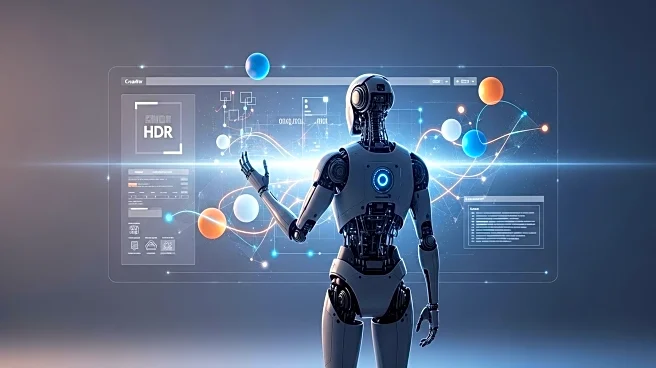What's Happening?
Simone Castle, head of social media and communications planning at Bally’s Interactive, discusses the role of AI in content creation at The Drum Awards Festival. Castle emphasizes that while AI can enhance content production by overcoming physical and cost limitations, it should not replace human creativity. She advocates for a balanced approach where AI serves as a tool to augment creativity, ensuring the brand's authentic voice is preserved. Castle also advises brands to focus their efforts on platforms that align with their values and audience engagement, rather than spreading themselves too thin across multiple channels.
Why It's Important?
Castle's insights highlight the growing importance of AI in the content creation industry, offering brands the ability to scale their output efficiently. However, the emphasis on authenticity underscores the need for brands to maintain their unique identity amidst technological advancements. As AI becomes more integrated into marketing strategies, brands must navigate the challenge of leveraging technology without compromising their core values and consumer trust. This balance is crucial for brands aiming to create impactful, purpose-led content that resonates with audiences.
What's Next?
Brands are likely to continue exploring AI's capabilities in content creation, focusing on developing strategies that integrate AI with human creativity. This may involve investing in AI tools and training creative teams to optimize content production while preserving brand authenticity. As AI technology evolves, brands will need to adapt their strategies to maintain relevance and engagement in a competitive digital landscape.
Beyond the Headlines
The use of AI in content creation raises ethical considerations regarding the authenticity and originality of brand messaging. Brands must address the potential for AI-generated content to appear disingenuous or 'purpose-washed' if not aligned with their values. Additionally, the reliance on AI may impact the future of creative jobs, necessitating new skill sets and roles within the industry.









